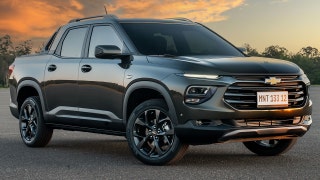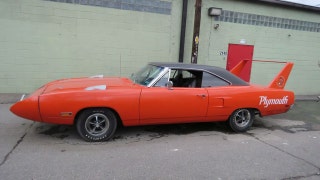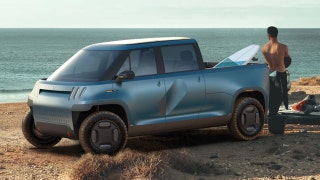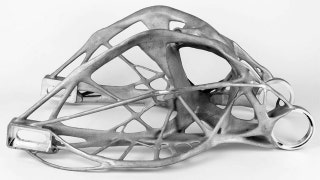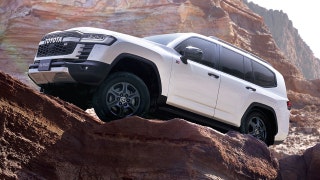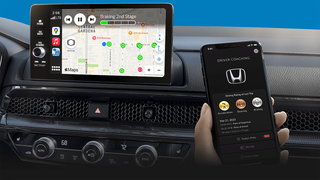TOKYO – Toyota is considering a recall of its hot-selling Corolla subcompact after complaints about power steering problems — another blow to the world's largest automaker already reeling from a string of recalls for safety problems.
Company President Akio Toyoda, meanwhile, said he won't be attending the U.S. congressional hearing on the automaker's safety lapses, entrusting the job to U.S.-based executives — though he did say he would appear if summoned. He said he wanted to focus his energies on improving quality worldwide.
"I trust that our officials in the U.S. will amply answer the questions," Toyoda told reporters Wednesday. "We are sending the best people to the hearing, and I hope to back up the efforts from headquarters."
He said Yoshi Inaba, who heads Toyota Motor Corp.'s North American unit, was more familiar with the U.S. situation and was the best executive to deal with the hearing. Toyoda said he was still making plans to go to the U.S. and dates have yet to be set.
But in an alarming disclosure that could widen Toyota's recall crisis, the Toyota executive in charge of quality controls, Shinichi Sasaki, said Toyota was taking seriously the complaints about power-steering problems in the Corolla, the world's best-selling car.
Sasaki said drivers may perceive a strange feeling as though they were losing control over the steering, but it was unclear whether the problem was with the braking system or a problem with the tires. There have been fewer than 100 complaints.
Speaking at Toyota's Tokyo office, he said it was still uncertain if a Corolla recall would be necessary but the automaker is considering one. The number of affected vehicles is unclear, he said.
The company was putting customers first in a renewed effort to salvage its reputation and would do whatever is necessary if a fix is needed, Sasaki said.
Toyota has recalled 8.5 million vehicles globally during the past four months because of problems with sticking gas pedals, floor mats trapping accelerators and faulty brake programming.
The U.S. House Oversight and Government Reform Committee is holding a hearing on Feb. 24 on Toyota's gas pedal problems. The House Energy and Commerce Committee has scheduled one the next day.
Inaba, Transportation Secretary Ray LaHood and NHTSA Administrator David Strickland are expected to testify at both meetings. The Senate Commerce, Science and Transportation Committee has scheduled a March 2 hearing.
Toyoda reiterated his promise to put customers first in beefing up quality controls at the world's No. 1 automaker.
He promised a brake-override system in all future models worldwide that will add a safety measure against acceleration problems that are behind the recent massive recalls.
The system is a mechanism that overrides the accelerator if the gas and brake pedals are pressed at the same time.
"We are not covering up anything, and we are not running away from anything," Toyoda said.
Toyota has also commissed an independent research organization to test its electronic throttle system, and will release the findings as they become available.
Toyota took full-page ads in major Japanese newspapers Wednesday to apologize for the massive recalls, most of which affect cars outside of Japan.
"We apologize from the bottom of our hearts for the great inconvenience and worries that we have caused you all," the black-and-white ads say.
Toyota has published similar ads of apology in U.S. papers. Toyota has also stopped airing TV ads in Japan for models affected by the recall, although it has continued them for other models.
Toyota in Japan had no immediate comment on the order Tuesday from the U.S. Transportation Department to hand over documents related to its massive recalls. The department wants to know how long the automaker knew of safety defects before taking action.
Toyota's U.S. unit said in a statement that it "takes its responsibility to advance vehicle safety seriously and to alert government officials of any safety issue in a timely manner."
"We are reviewing NHTSA's request and will cooperate to provide all the information they have requested," it said.
Toyota must respond within 30 to 60 days or face fines.
Reports of deaths in the U.S. connected to sudden acceleration in Toyota vehicles have surged in recent weeks, with the alleged death toll reaching 34 since 2000, according to new consumer data gathered by the U.S. government.
Under federal law, automakers must notify the department's National Highway Traffic Safety Administration within five days of determining that a safety defect exists and promptly conduct a recall.
Transportation Secretary Ray LaHood has said the government is considering civil penalties for Toyota over its handling of the recalls.





